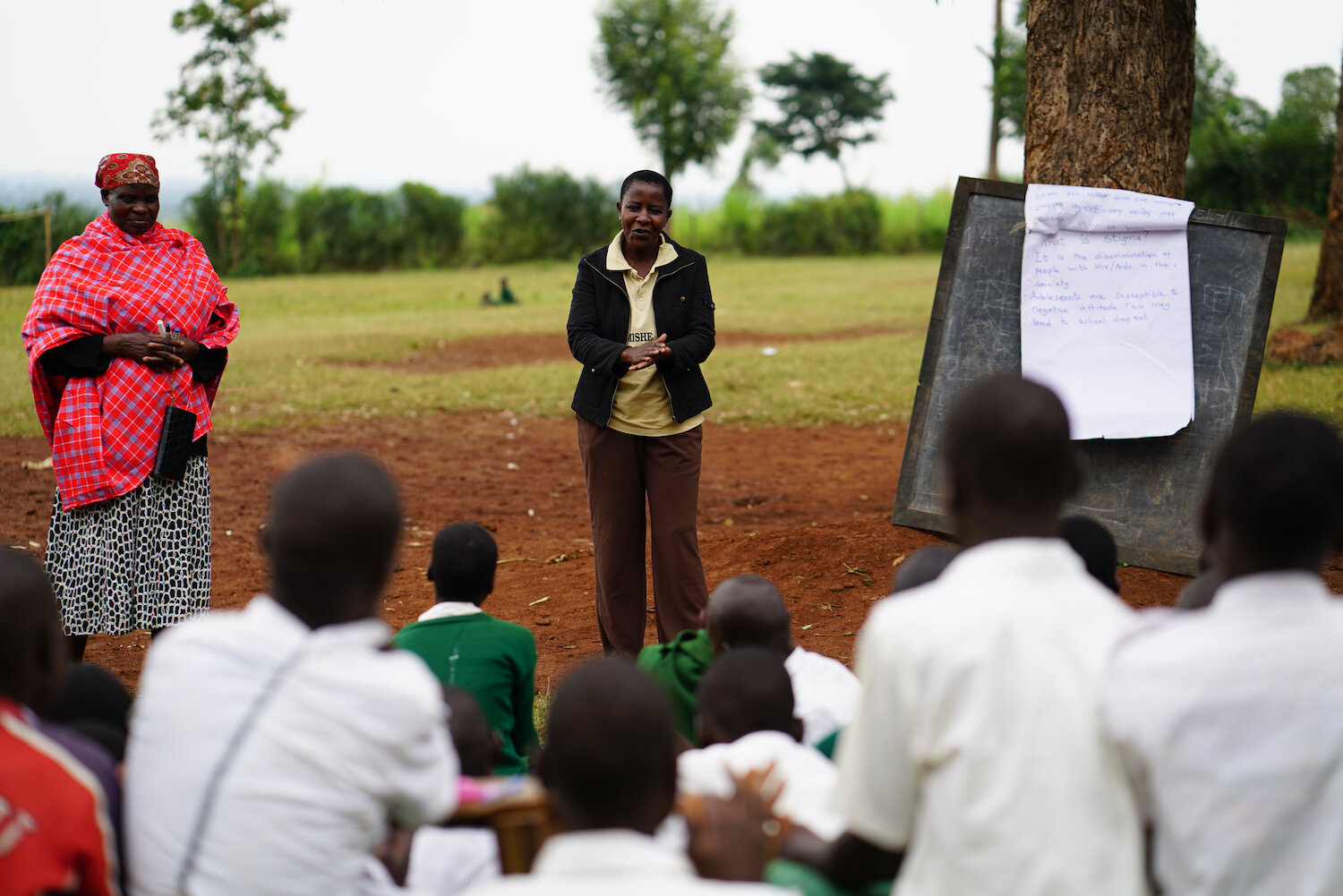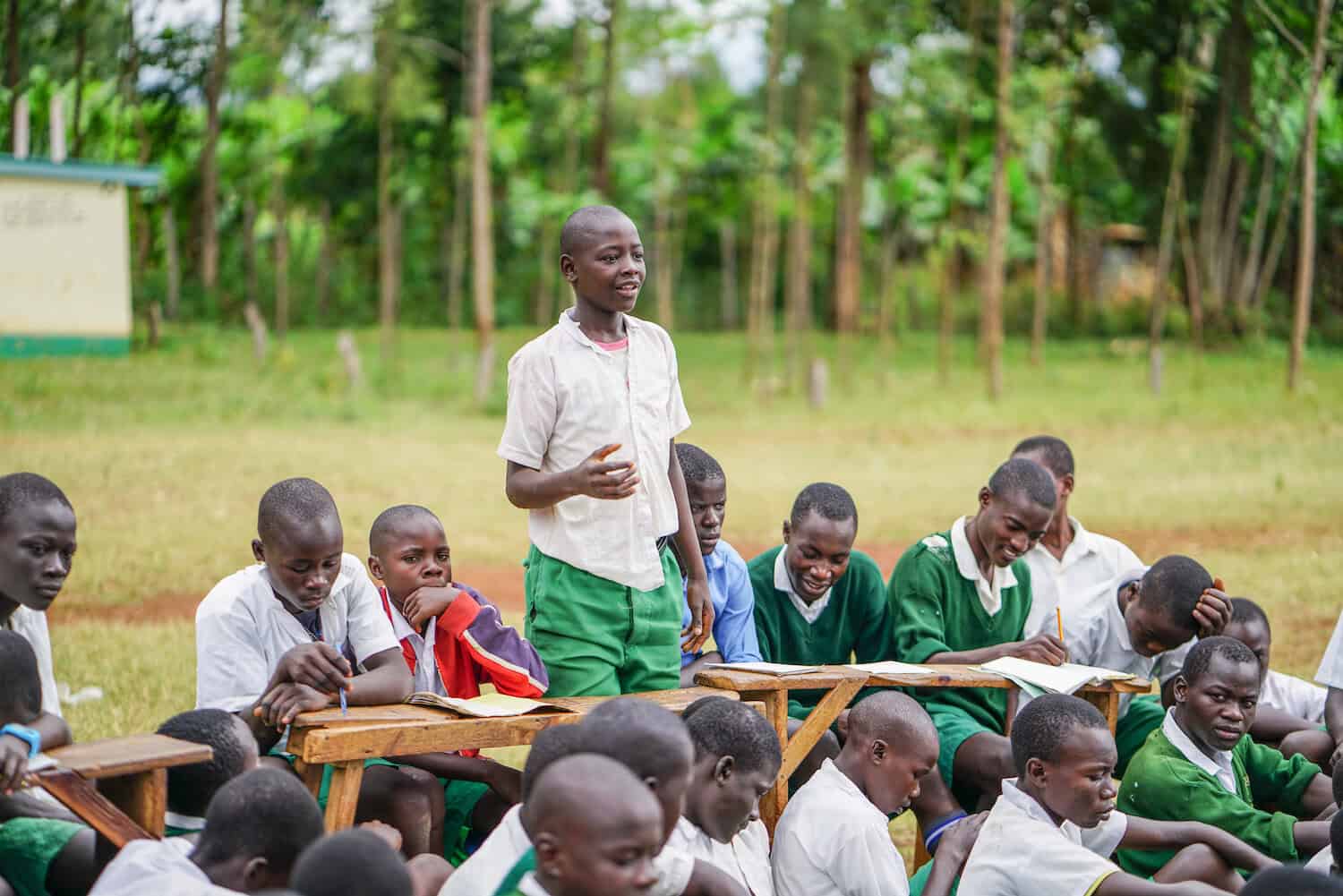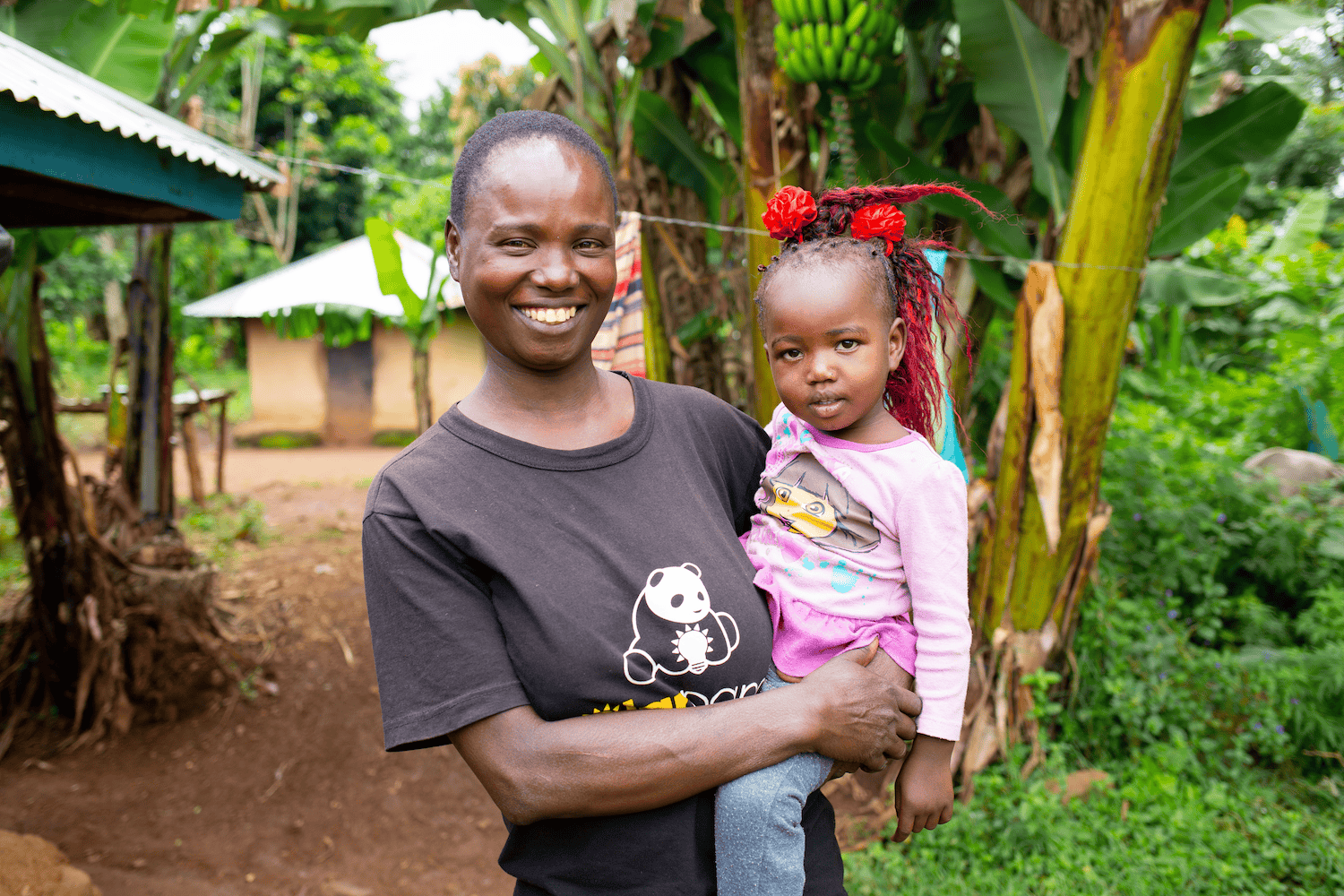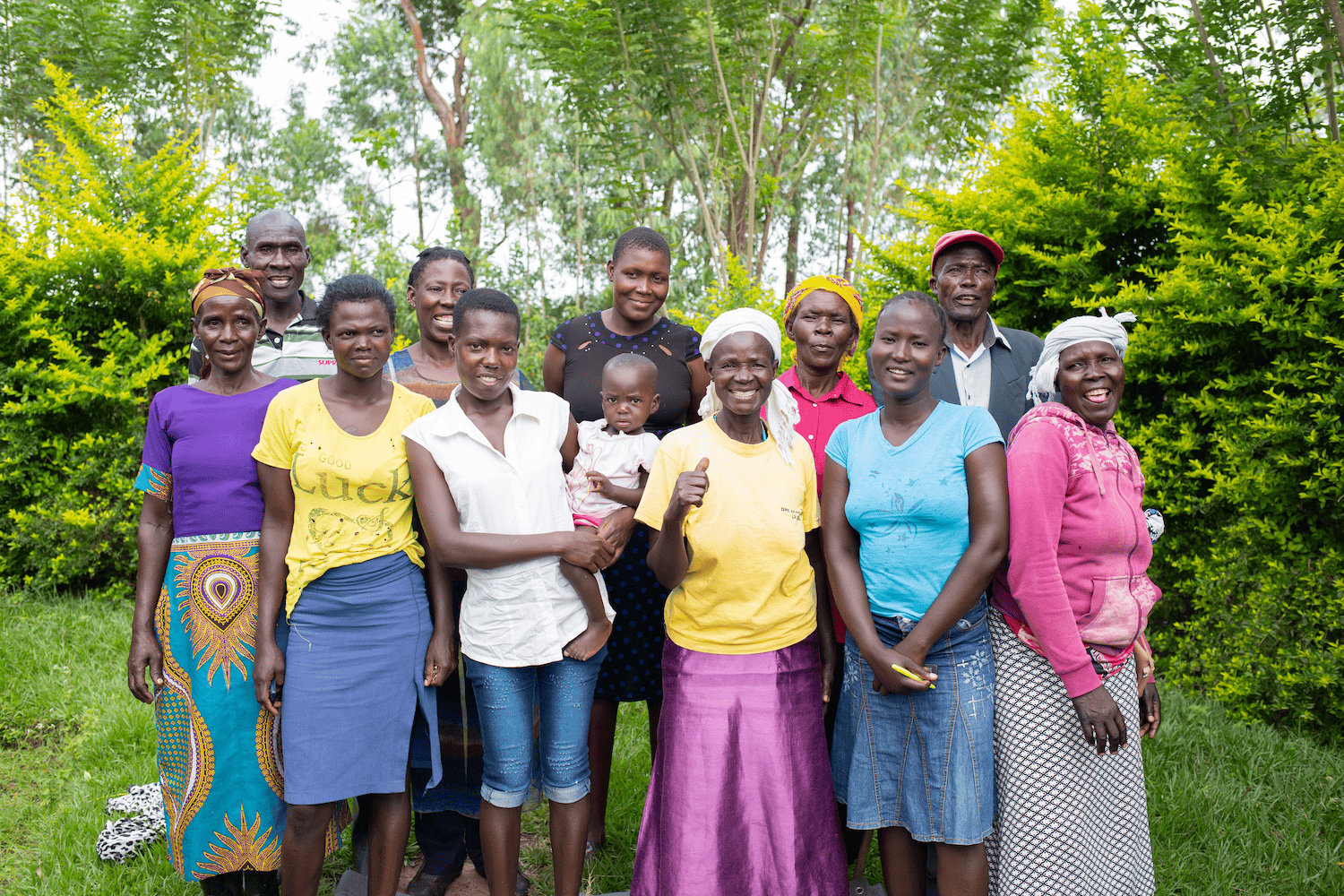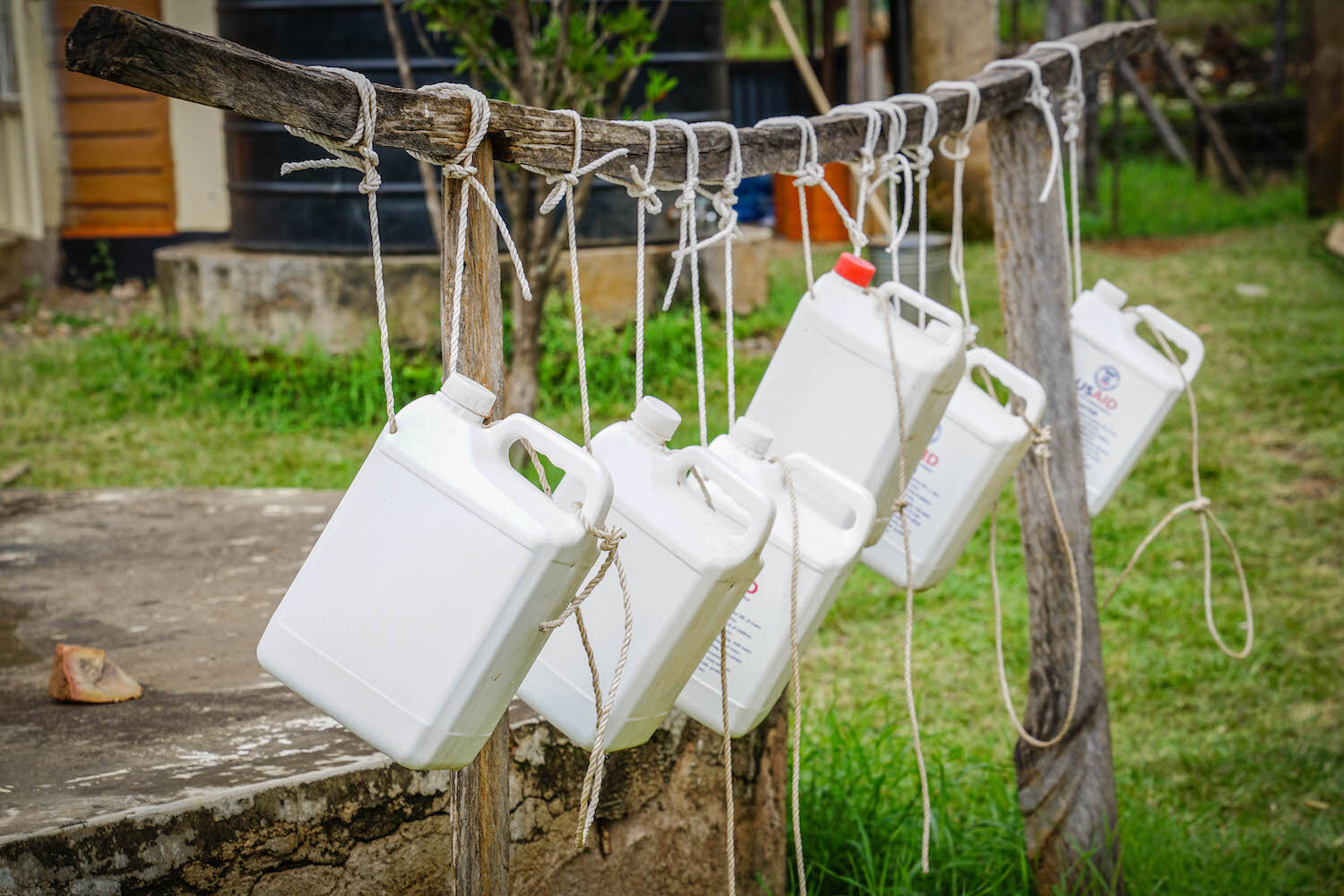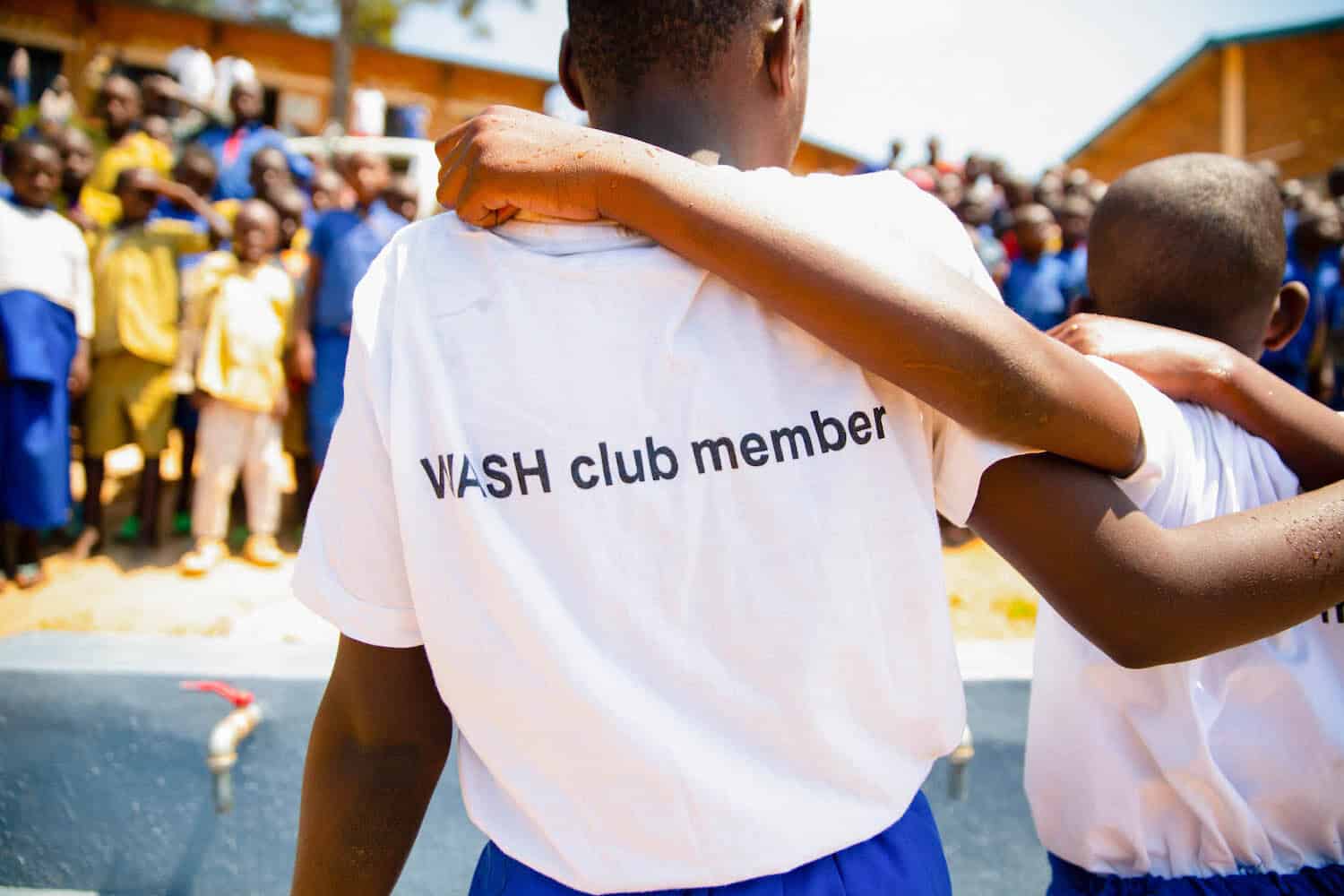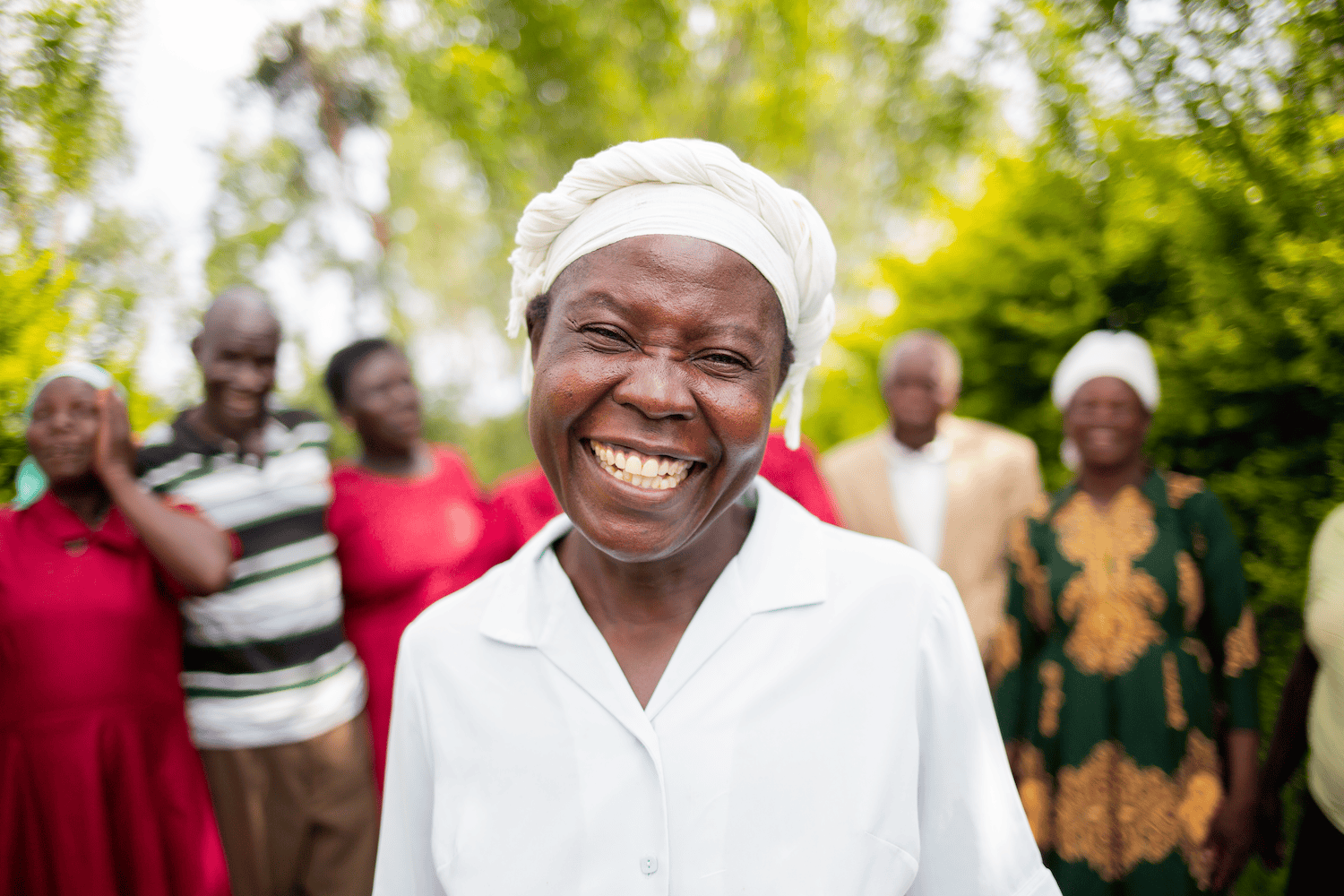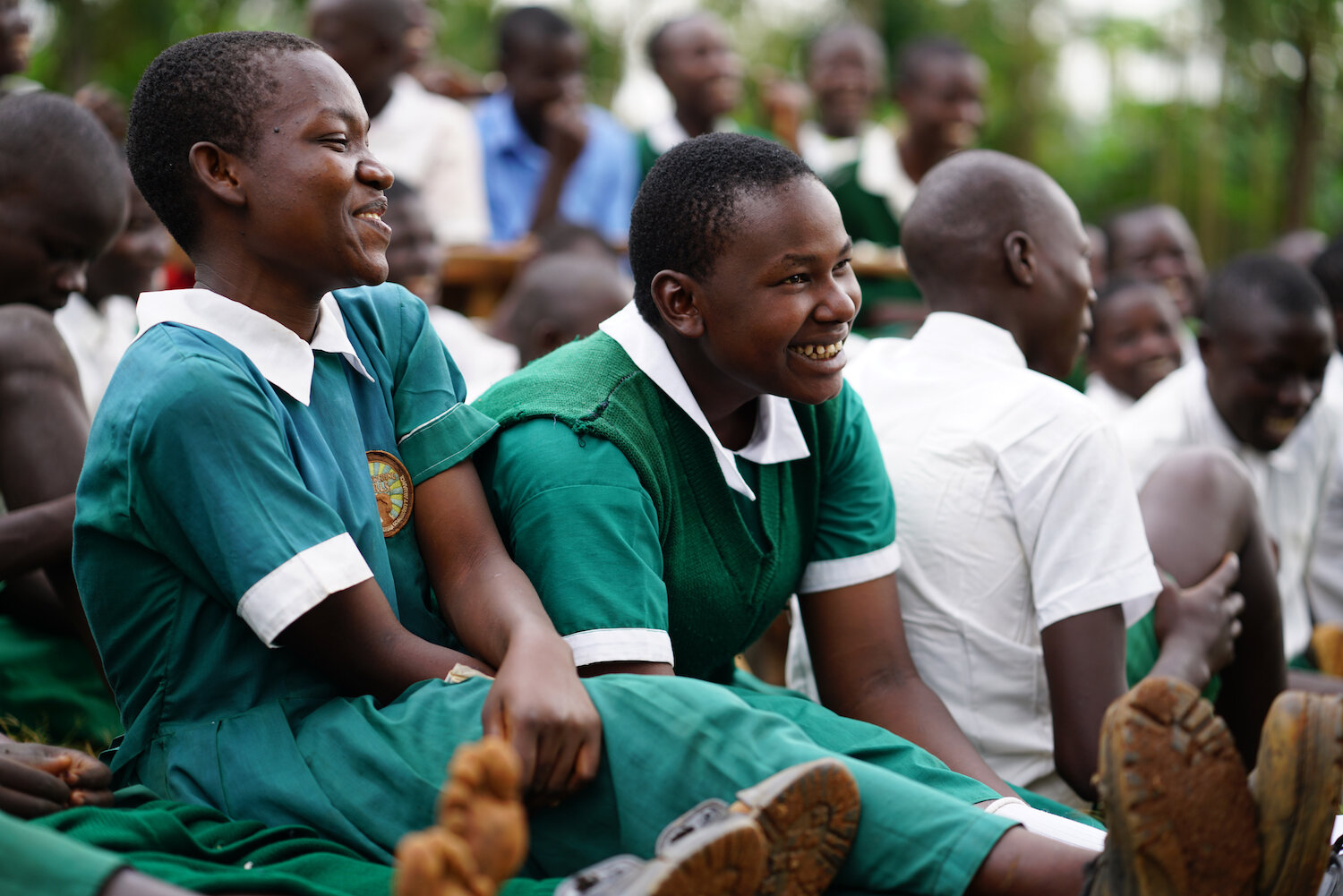Lwala Community Alliance (LWALA for short) in North Kamagambo, Kenya, has had a long history with Blood:Water. We’ve been working together since their organization was founded in 2007, and together, we’ve been able to grow, expand services, and provide better care for the people served. We’ve learned so much about how to better equip our partners and better support sustainable change thanks to their amazing leadership.
LWALA is committed to supporting and caring for those living with HIV/AIDS as well as vulnerable populations, and they use their knowledge and community relationships to adopt sustainable health solutions. Their hospital also offers a variety of life-giving primary care programs that otherwise would be inaccessible to people living in this rural area.
They’ve even been able to employ community health workers to go out to households to provide support and guidance where needed, even amidst the COVID-19 pandemic. Here’s an update from May 2020 that gives a glimpse into all the ways that LWALA serves its community.
>
“The long term relationship with Blood:Water has yielded a partnership [founded] on mutual trust that has informed our relationship with other donors. The belief in LWALA has cemented our position as a truly community-led organization with capacity to create change. For other funders, it serves as a model of partnership that should be emulated in delivering support to local organizations and growing more equal relationships in the development space.”
The Founding of LWALA: Against All Odds
While 2007 marks the official beginning of LWALA with the establishment of the Lwala Community Health Center, the story really goes back further. Lwala’s local health clinic was the dream of school teacher Erastus Ochieng. He was passionate about helping his fellow community-members gain access to essential health care without having to travel impossible distances. Erastus organized a committee to build the clinic, knowing intimately why it was important because he himself was suffering from an AIDS-related illness. Knowing personally how important HIV treatment was, he wanted to see others be able to receive this life-saving care before it was too late.
Sadly, Erastus passed away before the clinic was built. But his two sons, Fred and Milton, knew that they needed to continue fighting for their father’s vision. Both brothers won scholarships to Dartmouth College in New Hampshire, but they couldn’t afford the airfare. To pay for their flights, their village rallied together and sold chickens, goats, and cows with one request: that they – the village and its people – would not be forgotten by the brothers.
Fred and Milton later attended Vanderbilt University School of Medicine in Nashville, TN, where they continued working toward their goal of bringing health care to their home village. They partnered with churches, local politicians, and thousands of supporters across the country (also meeting Blood:Water’s co-founder Jena Lee Nardella), until they were able to return to Kenya to fulfill their father’s dream.
The Ochieng Dream in Practice: Above and Beyond
HIV/AIDS
It’s hard to summarize everything that the Ochieng brothers have started since LWALA’s inception. By providing HIV/AIDS treatment and WASH support, they’ve changed the lives of countless people who might otherwise have never been able to access this “basic” health care. In the last few months of 2020 alone, they reached 729 people with HIV testing and counseling, 218 of whom were pregnant mothers.
LWALA has placed great emphasis on creating HIV community support groups, as well as providing community outreach regarding HIV stigma, HIV prevention, and other vital health behaviors. Their efforts have had a noticeable impact on their community! In fall of 2020 alone, 8,195 people were reached with HIV stigma and discrimination interventions. Knowing their region has some of the highest HIV prevalence as well as infant and child mortality rates in the country of Kenya, LWALA does a great deal of work to aid orphans and vulnerable children.
WASH
LWALA has also made huge strides in providing reliable access to safe water, sanitation facilities, and hygiene practices, especially near their health facility and elementary schools in the area. An example of LWALA’s adaptability and community involvement was their approach to handwashing for one school in the area.
Although tippy taps (hanging jugs that dispense clean water for washing hands) are common in their region, children weren’t catching on as much as LWALA hoped, and soap and jugs often went missing. In response, the school held a competition for students to design a new handwashing station, deciding upon a small tank that pours water into a waist-high trough that all schools in the community are adopting!
This is just one example of the ways in which LWALA has empowered their local community to take their health into their own hands.
In the last quarter of 2020, LWALA trained 13,614 individuals in proper WASH (water, sanitation, and hygiene) practices, and reached 195 individuals with improved sanitation facilities like toilets. LWALA is a wonderful example of an organization that strives to both educate their community on the importance of health practices and also provide them with the facilities to follow them, while adapting to any difficulties that may arise.
Capacity Building
One of our core values is “teachability,” and LWALA has demonstrated this in spades! At the end of 2020, they self-identified areas they can grow in as an organization, as well as areas where Blood:Water can come alongside them in those efforts.
>
“The ongoing investment in organizational strengthening support by Blood:Water has been greatly beneficial to LWALA. This form of capacity building support that allows us to define our own priorities is empowering. We have worked on a number of projects aimed at improving our systems and we are a far better organization than what we were several years ago.”
Lives Forever Changed: LWALA’s Tangible Impact
At 56-years-old, Millicent had a hard time getting her HIV diagnosis, let alone accepting it. The first time she sought out a test, she had to travel by bus to reach a clinic where they told her that she’d need to begin taking daily medication. Since the clinic was so far away and the medication was costly, and she hadn’t received any psycho-social support in accepting her HIV status, Millicent was unable to keep up with her treatment. Six months later, she became very ill again.
At this point, Millicent traveled to a different clinic to get another test that confirmed her HIV status. However, this clinic was still too far away, and the money she had went toward providing for her family, as opposed to transportation costs.
Thankfully, she was able to go to the LWALA Hospital where she could finally receive the life-giving HIV treatment she needed. Because of the way LWALA’s clinic is set up, Millicent was able to receive this treatment without spending all of her time and money traveling to get it.
Today, Millicent is so motivated by LWALA’s mission and work that she is open with her family and community about her HIV status. Her openness and willingness to speak to her community about HIV is helping others realize that HIV is both preventable AND treatable. She has gained back her health, connected with others in the community, and is eating better thanks to LWALA’s on-site nutritionist.
Millicent is just one of the thousands of people impacted by LWALA’s work. Thanks to Milton and Fred’s commitment to carrying on their father’s legacy, all of these people have been able to receive life-changing care and support. This legacy extends out beyond the people personally reached by LWALA, and onto their families, villages, and the wider community.
Join us in thanking them for everything they do, and help us continue equipping and empowering partners like them!
